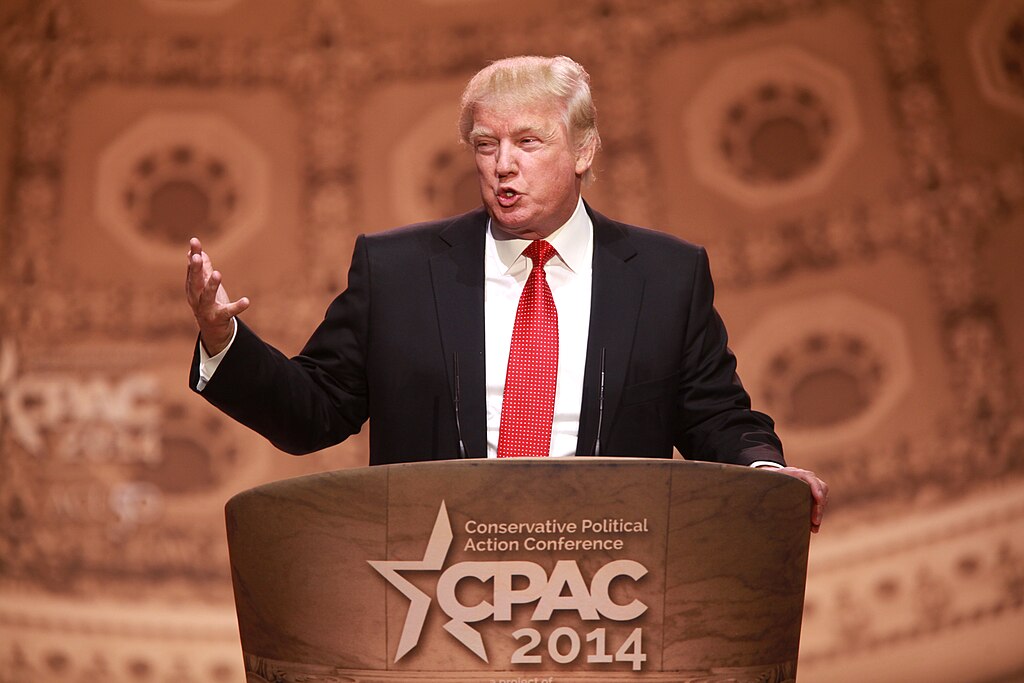Former President Donald Trump’s administration has announced a $200 billion initiative to fund high-speed rail projects across the United States, a move hailed by supporters as a modern transportation revolution but criticized by skeptics as a risky investment. The ambitious plan aims to overhaul the country’s rail infrastructure, aligning with global standards while addressing growing demand for eco-friendly transit options.
Federal Funding and Private Partnerships
The plan leverages $100 billion in federal funding, with an additional $100 billion expected from private sector investments. According to administration officials, the funding will target key states, including California, Texas, and Florida, aiming to connect major metropolitan areas with high-speed rail systems. Trump has positioned the project as essential for reducing traffic congestion, decreasing carbon emissions, and boosting economic growth.
Transportation Secretary Elaine Chao emphasized the administration’s commitment to public-private partnerships, stating, “This is not just about trains—it’s about jobs, cleaner air, and faster travel.”
Critics, however, argue that the project may saddle taxpayers with billions in debt. Environmentalists also question whether the plan adequately addresses concerns about land use and ecological impact.
Public Reaction: Mixed Feelings on Bold Investment
Trump’s high-speed rail plan has ignited debates across social media, with reactions ranging from enthusiastic support to scathing criticism.
- @RailRevolution: "Finally, the U.S. gets serious about high-speed rail. This is long overdue! #ModernTransit"
- @TaxpayerWatch: "Trump’s rail project sounds great until taxpayers foot the bill. Where’s the ROI? #ThinkTwice"
- @EcoAdvocate99: "Green energy plus efficient travel? Love this plan! Let’s catch up with Europe and Asia. #Sustainability"
- @FiscalHawk: "Public-private partnerships? We’ve heard this before, and taxpayers always lose. #WastefulSpending"
- @UrbanPlannerJoe: "Excited for high-speed rail but worried about land acquisitions disrupting local communities. #BalancedGrowth"
- @ClimateActionNow: "If done right, this could cut emissions significantly. Let’s push for responsible implementation. #CleanTransit"
Implementation Challenges Loom
Despite the ambitious nature of the project, challenges remain. Acquiring land for rail corridors has proven contentious, with lawsuits expected from property owners. Furthermore, experts warn that coordination between federal and state agencies, as well as securing private sector participation, will require careful negotiation.



 U.S. Lawmakers Question Trump’s Iran Strategy After Joint U.S.-Israeli Strikes
U.S. Lawmakers Question Trump’s Iran Strategy After Joint U.S.-Israeli Strikes  Israel Prepares Weeks-Long Military Campaign Against Iran Amid Escalating Air Strikes
Israel Prepares Weeks-Long Military Campaign Against Iran Amid Escalating Air Strikes  Supreme Court Backs GOP Lawmaker in New York Redistricting Fight Ahead of Midterms
Supreme Court Backs GOP Lawmaker in New York Redistricting Fight Ahead of Midterms  Trump Announces U.S. Strikes on Iran Navy as Conflict Escalates
Trump Announces U.S. Strikes on Iran Navy as Conflict Escalates  Rubio Says U.S. Would Not Target School After Deadly Iran Strike Reports
Rubio Says U.S. Would Not Target School After Deadly Iran Strike Reports  Zelenskiy Urges Change in Iran After U.S. and Israeli Strikes, Cites Drone Support for Russia
Zelenskiy Urges Change in Iran After U.S. and Israeli Strikes, Cites Drone Support for Russia  Trump’s Iran Strikes Spark War Powers Clash in Congress
Trump’s Iran Strikes Spark War Powers Clash in Congress  Melania Trump Chairs Historic U.N. Security Council Meeting on Children Amid Iran Conflict
Melania Trump Chairs Historic U.N. Security Council Meeting on Children Amid Iran Conflict  Trump Says U.S.-UK Relationship Has Deteriorated After Starmer Hesitates on Iran Strikes
Trump Says U.S.-UK Relationship Has Deteriorated After Starmer Hesitates on Iran Strikes  EU Urges Maximum Restraint in Iran Conflict Amid Fears of Regional Escalation and Oil Supply Disruption
EU Urges Maximum Restraint in Iran Conflict Amid Fears of Regional Escalation and Oil Supply Disruption  Argentina Tax Reform 2026: President Javier Milei Pushes Lower Taxes and Structural Changes
Argentina Tax Reform 2026: President Javier Milei Pushes Lower Taxes and Structural Changes  Trump Says U.S. Combat Operations in Iran Will Continue Until Objectives Are Met
Trump Says U.S. Combat Operations in Iran Will Continue Until Objectives Are Met  U.S. Deploys Tomahawks, B-2 Bombers, F-35 Jets and AI Tools in Operation Epic Fury Against Iran
U.S. Deploys Tomahawks, B-2 Bombers, F-35 Jets and AI Tools in Operation Epic Fury Against Iran  AI is already creeping into election campaigns. NZ’s rules aren’t ready
AI is already creeping into election campaigns. NZ’s rules aren’t ready  Why did Iran bomb Dubai? A Middle East expert explains the regional alliances at play
Why did Iran bomb Dubai? A Middle East expert explains the regional alliances at play  Trump to Attend White House Correspondents’ Dinner 2026, Ending Long Boycott
Trump to Attend White House Correspondents’ Dinner 2026, Ending Long Boycott  Trump Says U.S. Attacks on Iran Will Continue, Warns of More American Casualties
Trump Says U.S. Attacks on Iran Will Continue, Warns of More American Casualties 




























